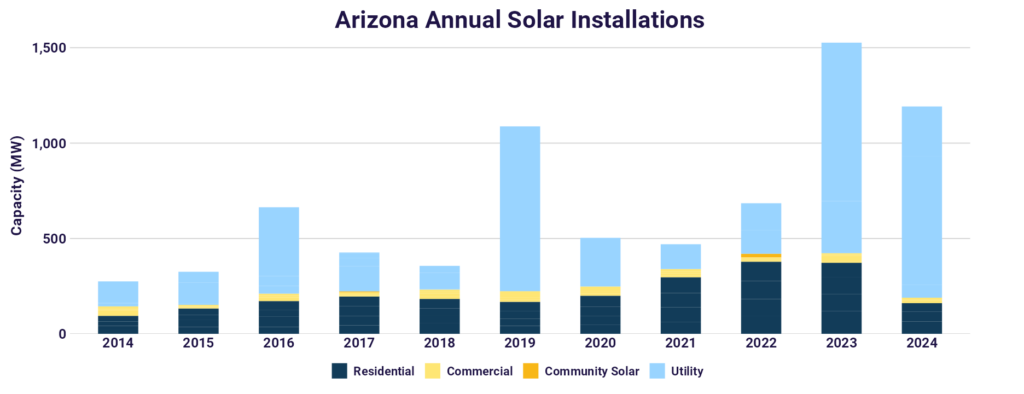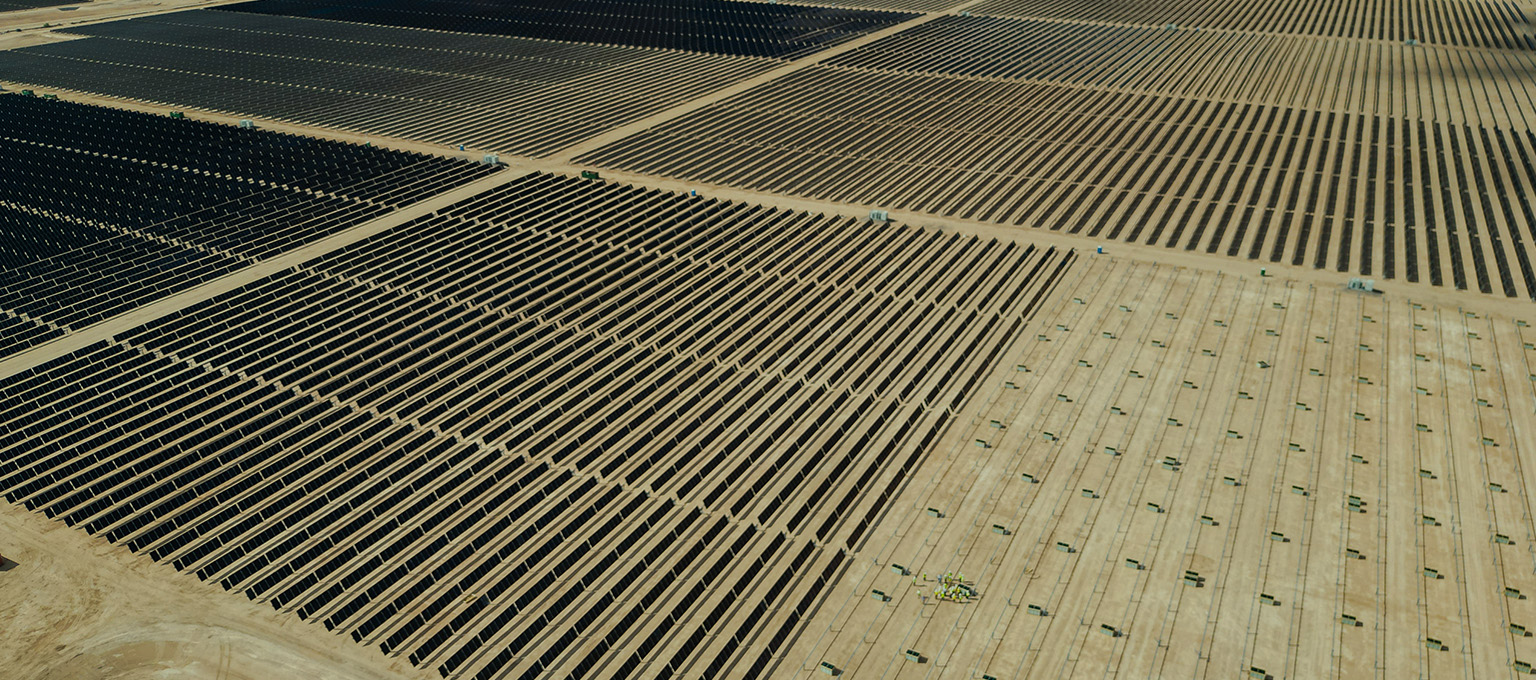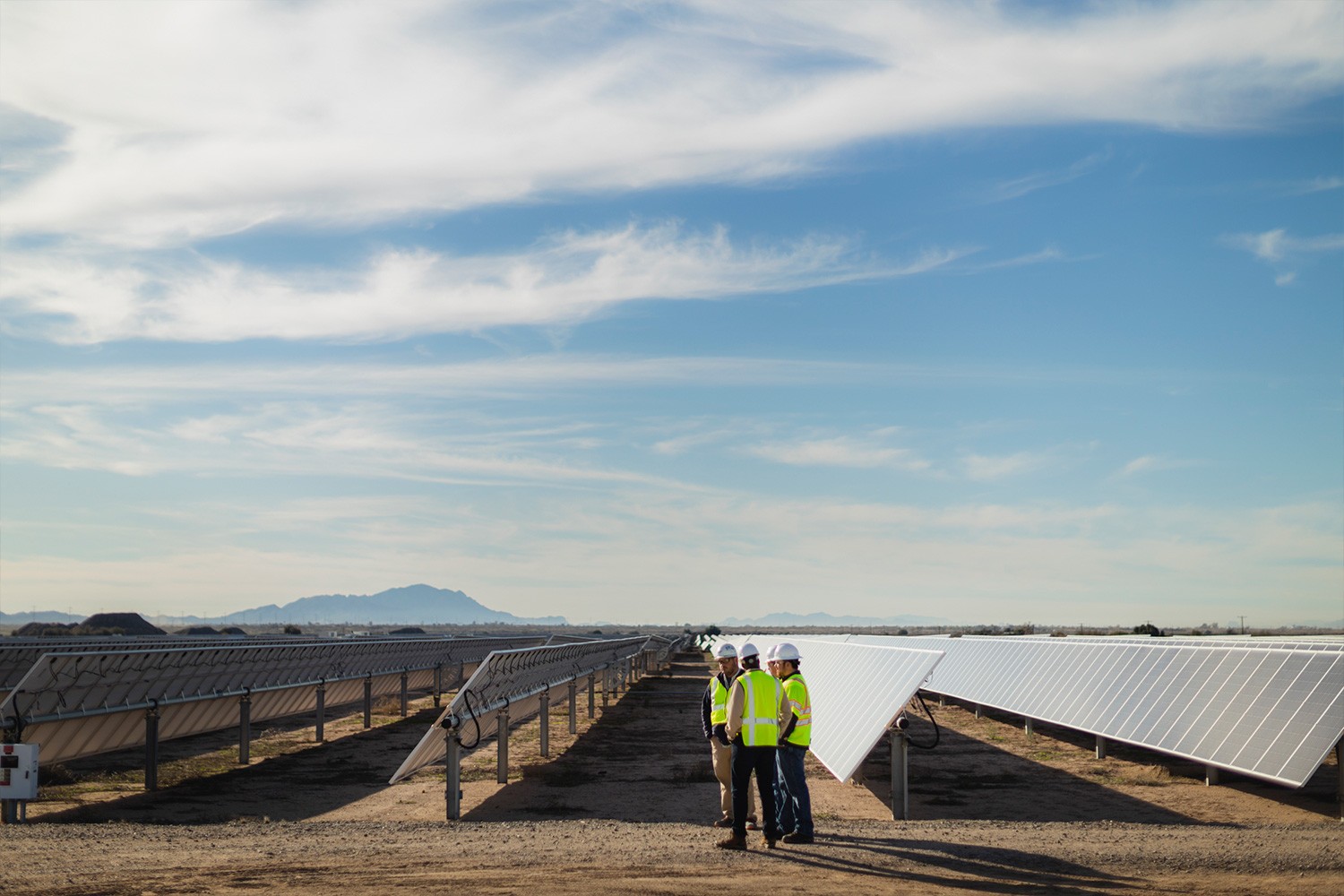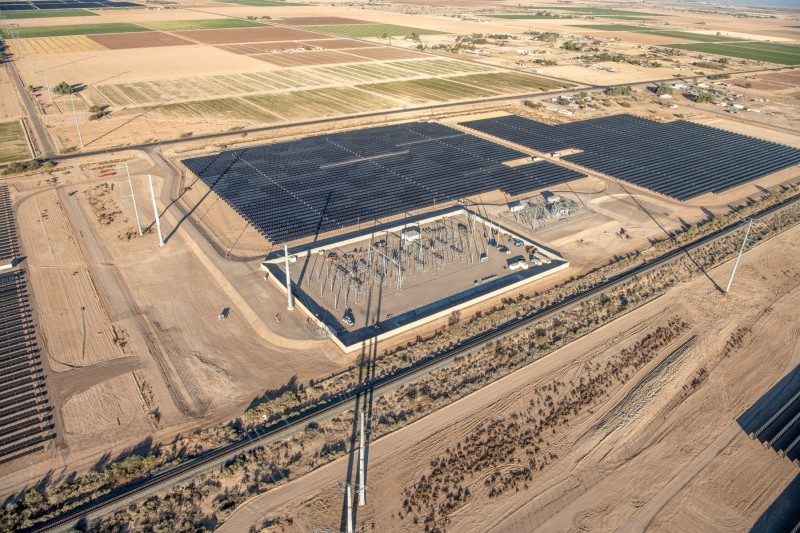State Overview
Arizona
National Solar Capacity Ranking: 5th
Data Current Through: Q3 2024

Arizona State Solar Overview
Arizona is one of the sunniest states and has huge potential for its solar market. While the state solar industry has tremendous growth opportunity, due to public debates about the benefits of solar, elimination of incentives, and declining compensation for distributed solar resources the market has been turbulent. SEIA is working with local stakeholders and policymakers to encourage stability and transparency so that the market can continue to grow.
Arizona Policy Priorities:
- SEIA works collaboratively with AriSEIA to leverage resources and contract with a lobbyist to engage at the legislature, focusing on reducing market barriers across industry sectors.
- At the Arizona Corporation Commission, SEIA advocates for policies and programs that accurately reflect the benefits of solar and storage resources, including piloting Virtual Power Plant programs, opposing discriminatory fees for solar customers, and competitive resource procurement.
Official SEIA State Affiliate


Just The Facts
-
Solar Installed (MW):
9,533
-
National Ranking:
5th (5th in 2023)
-
Enough Solar Installed to Power:
1,429,838 homes
-
Percentage of State's Electricity from Solar:
12.67%
-
Solar Jobs:
9,726
-
Solar Companies in State:
379 (80 Manufacturers, 171 Installers/Developers, 128 Others)
-
Total Solar Investment in State:
$21.3 billion
-
Prices have fallen:
37% over the last 10 years
-
Growth Projection and Ranking:
12610 MW over the next 5 years (ranks 4th)
-
Number of Installations:
305,995

Arizona State Solar Policy Resources
-
Official SEIA State Affiliate – Arizona Solar Energy Industries Association (AriSEIA)
-
Arizona Corporation Commission – Learn about the governing body that regulates the electricity rates and services of Arizona public utilities
-
Arizona Goes Solar – Learn about residential and commercial solar energy options and related regulations through a collaborative effort led by the Arizona Corporation Commission and implemented by the regulated electric utilities in Arizona
-
Arizona Governor’s Office of Energy Policy – Find a wide variety of information on state government energy programs, policy, projects, energy-saving strategies and energy-related statistics
-
Arizona Solar Panels Overview – Learn about the history of solar policy in Arizona, along with up-to-date pricing information on EnergySage
-
Arizona State Legislature – Track pending legislation affecting solar energy, locate and contact individual legislators, and stay up to date on current legislative issues in Arizona
-
Arizona State University – Solar Power Lab – Read about the innovative solar technology research taking place at Arizona State University
-
DSIRE Incentives Database – Arizona – Search a public clearinghouse for specific solar energy incentives in Arizona and across the United States
-
U.S. Energy Information Administration – Arizona State Profile – Explore official energy statistics, including data on electricity supply and demand, from the U.S. government
-
Solar Panel Cost in Arizona – Learn about the history of solar policy in Arizona, along with up-to-date pricing information on EnergySage
-
Solar Rebates & Incentives in Arizona – Check out EnergySage’s list of key solar incentives in Arizona to see what programs you can benefit from
Arizona law contains detailed consumer protection provisions, including regulations on door-to-door sales, advertising requirements, prohibition of deceptive practices, and a construction recovery fund.
Specific to the solar industry, ARS 44-76 details contract requirements and disclosures for distributed generation. Companies who lease or sell solar systems to consumers in Arizona must provide a certificate that the system complies with Arizona law and must receive specific acknowledgment from customers on contract terms, including warranty information, cost, payment schedule, utility rates, and others.
Arizona Energy Storage Policy and Market Overview
The four corner states expect to experience the strongest energy storage growth by the end of the decade, and Arizona is leading the pack. In Q2 2024, Arizona outpaced Texas by adding 2,600 MWh of grid-scale energy storage. A streamlined interconnection process and financial incentives are reducing market burdens and supporting swift system deployment.
Most significantly, Arizona regulators eased the interconnection process for distributed generation and energy storage systems. A tiered fast tracking approval process based on system size allows for a thorough, systematic, and swift process. Arizona electric utilities are taking advantage of favorable regulations and have procured over 900 MW of battery storage. Another 2,000 MW is expected to be in service by 2025.
Statewide tax incentives and exemptions are easing entrance into both the renewable energy and battery storage marketplace. Simultaneously, the state is quickly becoming a hub of battery manufacturing. Multiple billion-dollar facilities are in construction and supporting thousands of jobs. In developing a circular battery economy, a formidable and competitive energy storage market is emerging in Arizona.
Arizona Energy Storage Policy Resources
- Property Tax Assessment for Renewable Energy and Storage Equipment – Property tax exemption for renewable energy and energy storage equipment.
- Arizona Fast-Track Interconnection Guidelines – Arizona the Distributed Generation expedited interconnection process. Find more information from Arizona Public Service Interconnection Guidelines.
- Credit for Renewable Energy Investment and Production for Self-Consumption by Manufacturers – Tax credits for international operation centers for the production or investment in standalone or renewable energy-plus-storage systems.
- Arizona Governor’s Office of Resiliency – State and federal grant funding for grid resilience, energy affordability programs, and clean energy incentives.
- Pacific Northwest National Laboratories Energy Storage Policy Database – Map of Procurement, Regulatory, Demonstration, Incentive, and Interconnection policies in Arizona and across the United States.
- DSIRE Arizona Energy Storage Policy Database – Clearinghouse for financial incentives, regulations, and rebates for energy storage and lithium-ion technologies in Arizona and across the United States.
- Arizona Storage Incentives –EnergySage’s list of key storage incentives and rebates and see what programs you can benefit from.
- Energy Storage Cost in Arizona – Up-to-date storage and solar-plus-storage pricing and find installers in Arizona on EnergySage.
- Arizona Corporation Commission – Governing body that regulates the electricity rates and services of Arizona public utilities, search for regulatory dockets, programs, and initiatives.
- Arizona Legislature – Pending, passed, and historical legislation affecting energy storage and battery systems, locate and contact individual legislators, and stay up to date on current legislative issues in Arizona.





